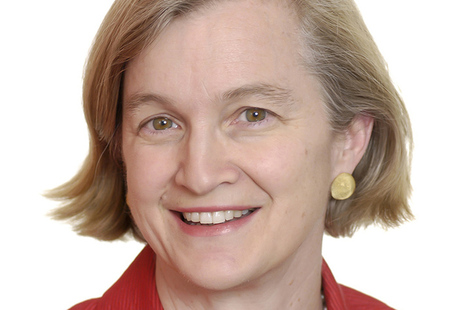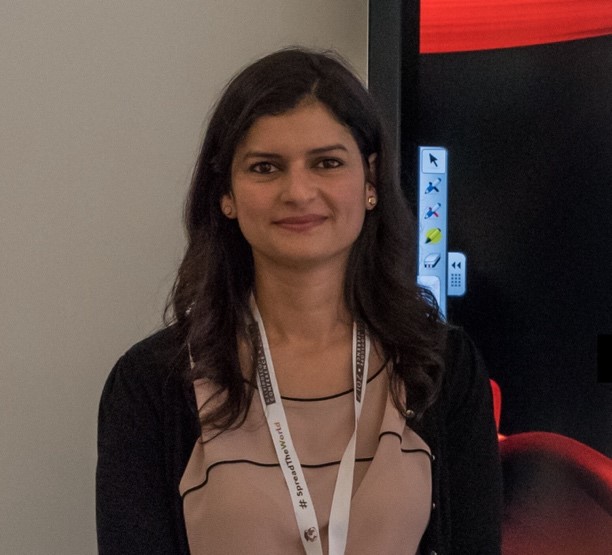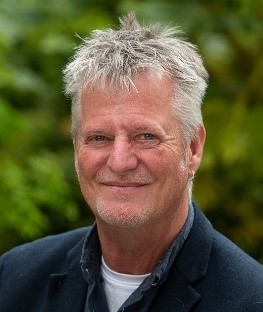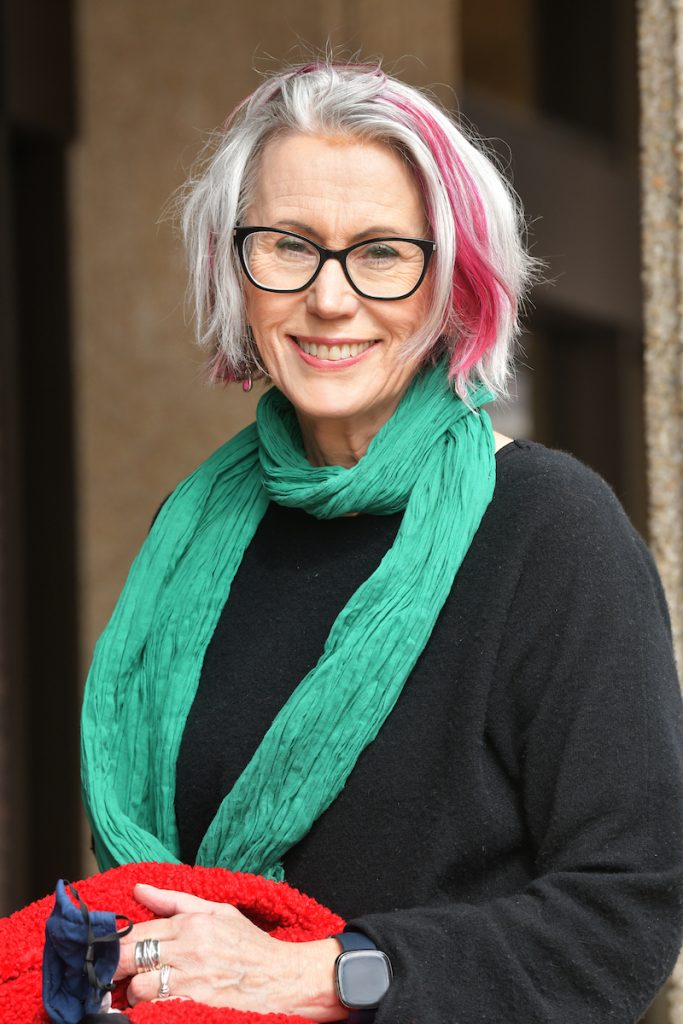Contemporary Issues in Education
In Hilary Term 2023, the public seminar series covered a range of current and pressing issues in education including high stakes assessments, trust in science education, gender, and public service in rural areas.
Public Seminar Series

In Hilary Term 2023, the public seminar series covered a range of current and pressing issues in education including high stakes assessments, trust in science education, gender, and public service in rural areas.
Week 1: The use of research evidence in education policy and practice: a view from the Chief Inspector
16 January – Chair: Michelle Meadows Speaker: Amanda Spielman
A recording of this seminar is now available on our Youtube channel.

23 January – Chair: Sonali Nag Speaker: Akshay Mangla
Abstract:
What makes bureaucracy work for the least advantaged? Akshay Mangla explores this question in his new book, Making Bureaucracy Work: Norms, Education and Public Service Delivery in Rural India (Cambridge University Press, Cambridge Studies in the Comparative Politics of Education). All across the world, countries have adopted policies for universal primary education, but implementation is highly uneven and not well understood. Conventional wisdom holds that developing countries need to adopt strong formal-legal institutions to implement such programs and achieve human development, including Weberian bureaucracies insulated from societal interference. Where bureaucratic institutions are weak or politicized, the literature is pessimistic about policy implementation. Yet, bureaucratic organizations often depart widely from the Weberian ideal, and while some agencies perform poorly, others produce remarkable results. To explore this varied performance, Mangla deploys a multi-level comparative research design, analyzing the puzzling variation in education outcomes across four states in northern India, a region of entrenched social inequalities, where conventional theories expect bureaucracy to fail.
Making Bureaucracy Work advances a theoretical framework anchored on bureaucratic norms, the informal rules of the game that guide how public officials understand their duties and relate with citizens on the ground. The book develops an analytical typology, of “legalistic” and “deliberative” bureaucracy, and elucidates the mechanisms through which bureaucratic norms generate varied implementation patterns and outcomes for primary education. To build and test the book’s theory, Mangla opens up the black box of Indian bureaucracy. Based on twenty-eight months of field research—including 507 interviews of state actors, 346 interviews of non-state actors, 103 focus group discussions with parents and women’s village associations; participant observation of education bureaucracies, along with village-level ethnographies—he traces the policy implementation process from state capitals to rural districts, down to village primary schools.
The study finds that legalistic bureaucracies encourage compliance with policy rules, leading to improvements in school infrastructure and enrolments, but they perform poorly on complex tasks that require coordination with societal actors. Worse, they tend to undermine the participation of marginalized social groups in school governance. By contrast, deliberative bureaucracies encourage more flexible problem solving by state officials, who tend to facilitate the coproduction of education with societal actors. Deliberation with society enables public officials to adapt policy rules to meet the practical needs of marginalized communities, thereby improving the quality of education services. Contrary to received wisdom, bureaucracy in India can work, depending on the norms that guide public officials. The argument has relevance for the delivery of education and other public services, especially in settings of inequality. It offers new thinking about bureaucracy’s role in promoting inclusive development.
A recording of this seminar is now available on our Youtube channel.

30 January – Chair: Steve Strand Speaker: Aliya Khalid
Abstract:
Literature informs of how aspirations of some groups can be ‘naïve’, ‘too low’ or ‘too high and unrealistic’ (for example, certain communities in England). It also tells us that gender remains a key predictor of disadvantage (especially certain women in particular parts of the world-Pakistan). These discussions are based on data and evidence which shows only one side of the picture-how structures constrain people. A key aim of these narratives is to campaign for more resources to be provided to marginalised groups sometimes at the cost of a failure to recognise the subjectivity of the people in question. Such deficit discourses about certain groups though meaning well, omit questions around the subjectivity and agency of people existing within structural constraints. In order to find the balance between defining people based on their conditions and recognising individual struggle, analytical tools and approaches are needed to account for individual struggle. This talk is a recollection of my own journey as a researcher and teacher as I have reflected on two questions: how do we engage analytically through research and practice with contexts that are differently structured (economically and socially) and unintelligible to North informed research sensibilities? How do we become researchers who can adapt practice to stay relevant in this complex international field?
A recording of this seminar is now available on our Youtube channel.

6 February – Chair: Sonali Nag Speaker: Steve Strand
Abstract:
Educational achievement at age 16, at the end of statutory full-time education, is key to young people’s future educational, economic, health and well-being outcomes. I look at achievement gaps by the three central dimensions of inequality: race, sex and class, and use the Second Longitudinal Study of Young People in England (LSYPE2) which is the most up-to-date nationally representative dataset with comprehensive measures.
The largest achievement gaps are those associated with family socio-economic status (SES) as indexed by parental occupation, education and household income. For example, the achievement gap between pupils with at least one parent in a managerial or professional occupation and those with parents in semi-routine or routine occupations was large (0.81 SD). This was almost three times larger than the gap between boys and girls which was small (0.29 SD), and eight times larger than gap between Black and White pupils which was very small (0.11 SD).
The most important thing though, is to look at this data intersectionally, since everyone has a race, sex and class background, we don’t hold any of these characteristics in isolation. The young people with the lowest achievement at age 16 are from low SES backgrounds, particularly (though not exclusively) White British and Black Caribbean young people, and particularly (though not exclusively) boys. The message for social justice from the analysis is: your race, your sex and your class all matter, and in combination.
A recording of this seminar is now available on our YouTube channel.

13 February – Chair: Nigel Fancourt Speaker: Steve Puttick
Abstract:
Education and training are increasingly positioned in global policy discourses as central to meeting net zero targets. The scale of this challenge is vast, the politics are fraught, the injustices are enduring, and the teachers are already stretched. Endless lists are created of the dimensions through which climate change might be shown as complex; disciplinary, spatial, political, temporal, epistemological, ethical, and more all intersect in this wicked problem. Responses through education and training for the climate add further conceptual, pedagogical, curricular, and practical complexities. Far-reaching curricular reform is demanded by global youth-led school strikes, and action was needed yesterday.
This talk will present findings from research with teachers in India to explore the spaces, places and knowledges through which education and training for the climate is produced, including paying attention to these teachers’ challenge of an Anglo-American dominance of knowledge production and modelling through which we might come to know ‘the climate’, and highlighting their call for more locally specific information and resources. The strength of these teachers’ beliefs about climate change – even in the face of a perceived lack of expertise or understanding – highlights the profound challenge of (un)certainty in education and training for the climate.
Oxford’s Future ETC (Future of Education and Training for the Climate) hub is one institutional response to the challenge of climate change, and this talk will conclude by outlining the vision and opportunities of this work.
A recording of this seminar is now available on our Youtube channel.

20 February – Chair: Sibel Erduran Speaker: Michael Reiss
Abstract:
For a long time, it has been widely assumed by most people in authority that vaccines are unquestionably ‘a good thing’. Too often it has been presumed that those who hesitate about vaccines or reject them are either stupid or selfish. This approach fails for two reasons, first, on instrumental grounds – treating people as ill-informed or selfish is not particularly conducive to getting them to change their mind – and, secondly, because it is intrinsically disrespectful to people. COVID-19 and earlier reactions to vaccination health scares show how important high-quality education about vaccines is. I consider what the aims of teaching and communicating about vaccination should be, and at the lessons that controversies over vaccination have for school science education and for science communication more generally.
A recording of this seminar is now available on our Youtube channel.

27 February – Chair: Jo-Anne Baird Speaker: Alina von Davier
Abstract:
In this presentation the transformation of assessment development using AI, computational psychometric models, and engineering techniques will be discussed. The cycle of test construction, administration, and scoring is labor-intensive, time-consuming and costly, yet it is necessary to support high standards of validity evidence or even legislative requirements. We will hear about how AI generally, and large computational language models in particular, have penetrated various phases of the test development cycle, with a focus on item generation and test design for different skills and domains.
These generative AI-based language models consist of multi-layered neural networks. Generative Pre-trained Transformer 3 (GPT-3) is a well-known application of a machine learning model that was (pre)trained on a dataset of 500 billion words, and which can generate stories, blogs, news reports and chats that can be indistinguishable from those written by humans. The advantage of pre-trained language models such as GPT-3 is that, once they have been built with a vast corpus of data and learned the connections between words, they can then be tuned for various purposes with relatively little data. This can be useful, for instance, in automated item generation (AIG) and text generation. Rather than the older approach to AIG with rule-based templates where elements are swapped out, pre-trained language models can create original content (texts and items). Using computational psychometrics (a blend of AI and psychometrics—von Davier 2015; 2017) we can then produce estimates of item difficulties with very little pilot data (Attali et al, 2022).
These applications will be illustrated with the “Item Factory”, a newly launched intelligent system that uses human-in-the-loop AI for test development for the Duolingo assessments.
Alina von Davier Biography:
Alina von Davier, PhD. is Chief of Assessment at Duolingo and CEO and Founder of EdAstra Tech. Von Davier operates at the forefront of Computational Psychometrics. Her current research interests involve developing psychometric methodologies in support of digital-first assessments, such as the Duolingo English Test, using techniques incorporating machine learning, data mining, Bayesian inference methods, and stochastic processes. Her co-authored book on adaptive and multistage testing Computerized Adaptive and Multistage Testing with R (2017) and the R package to support the applications received the B. Hanson Award from National Council of Measurement in Education (NCME) in 2022.
A recording of this seminar is now available on our Youtube channel.

6 March – Chair: Ian Thompson Speaker: Leesa Wheelahan
Abstract:
Dismay in policy and scholarly discourse about what is called ‘over education’ and credential creep co-exists with dismay about skill mismatches and skill shortages. Credential creep is the outcome when employers demand ever-higher level qualifications for appointment to jobs lower in the job hierarchy, thus displacing hitherto existing opportunities for those without qualifications. Skill mismatches and skill shortages putatively arise when graduates’ qualifications do not equip them for the jobs that are available. So, educational institutions are blamed for both over- and under-educating prospective workers.
A recent variant is to blame educational institutions for not ensuring that graduates have ‘useful’ skills that employers ‘need’. These putative deficits in qualifications have led to questioning their value and purpose. In response, governments around the world have been quick to fund micro-credentials as the solution to these problems. Micro-credentials are short, mostly work-focused programs that are designed to ensure individuals have the right skills, just-in-time. They shift the focus from full qualifications to tightly focused work-related sets of skills, and in the process undermine the value and importance of qualifications and limit the purposes of education to providing narrow skills for specific jobs.
In this lecture, I will explore the different ways in which the role and purpose of qualifications in society are theorised, including human capital theory, institutionalist theories, and Weberian and Marxist credentialist theories. While all these theories offer important insights, they mostly suffer from the shared problematic assumption that the main purpose of qualifications is to prepare people for the labour market. In contrast, I will argue that qualifications have intrinsic value, educational value, use value, social value, and exchange value. In societies such as the UK, Australia, and Canada (the three systems with which I am most familiar with) mass and universal levels of participation in tertiary education and attainment of a qualification is a precondition for full participation in society as a citizen and a worker. Micro-credentials are at best a distraction, and at worst, a side-alley in which the most disadvantaged students will be diverted. The lecture will conclude by arguing that a broader conception of the purpose of qualifications is needed, one that supports human flourishing.
Leesa Wheelahan Biography:
Professor Leesa Wheelahan holds the William G. Davis Chair of Community College Leadership at the Ontario Institute for Studies in Education at the University of Toronto. She is also a senior honorary fellow at the Centre for the Study of Higher Education at the University of Melbourne, and an honorary fellow at the Centre for Skills, Knowledge, and Organisational Performance (SKOPE) in the Department of Education, at Oxford University. Her research focuses on: the nature and purpose of qualifications; the role of theoretical knowledge in curriculum; pathways between the sectors of tertiary education and between tertiary education and the labour market; relations between colleges and universities; colleges as institutions; degrees in colleges; tertiary education policy; and, marketisation and privatisation in vocational education and the college sector.
A recording of this seminar is now available on our Youtube channel.
To find out what other events are taking place at the Department of Education go to out events page.

